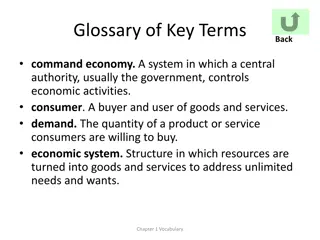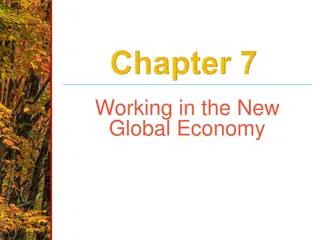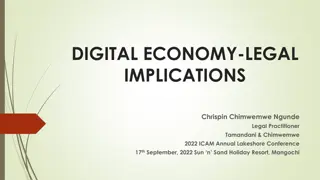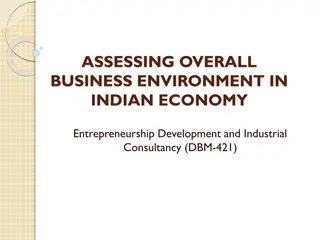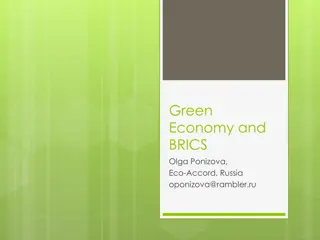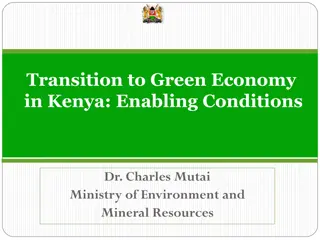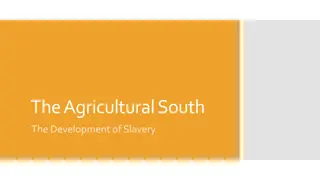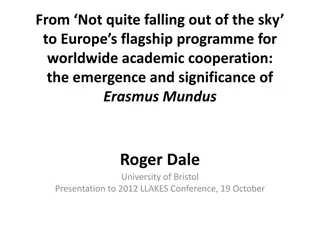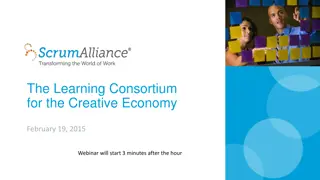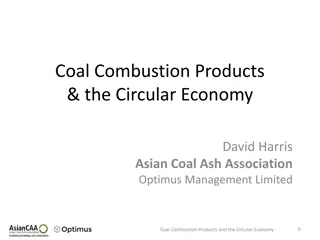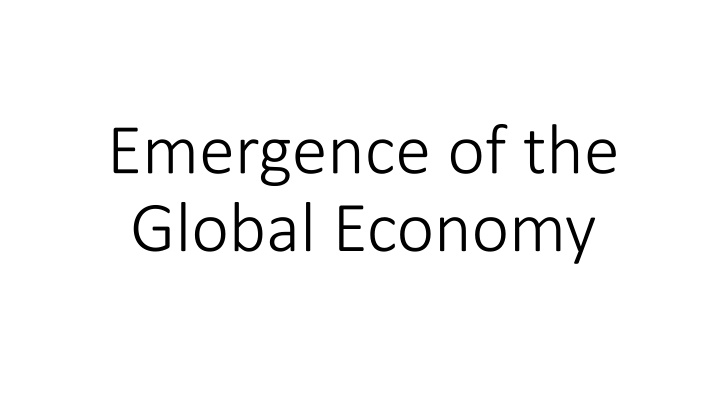
European Economic Expansion: Market Development and Global Influence
Early modern Europe witnessed the emergence of a market economy, leading to increased trade, financial innovations, and the exploitation of colonies for economic gain. This economic expansion contributed to revolutions in agriculture, industry, and consumer culture in Europe, accompanied by commercial rivalries and territorial conflicts among European states.
Download Presentation

Please find below an Image/Link to download the presentation.
The content on the website is provided AS IS for your information and personal use only. It may not be sold, licensed, or shared on other websites without obtaining consent from the author. If you encounter any issues during the download, it is possible that the publisher has removed the file from their server.
You are allowed to download the files provided on this website for personal or commercial use, subject to the condition that they are used lawfully. All files are the property of their respective owners.
The content on the website is provided AS IS for your information and personal use only. It may not be sold, licensed, or shared on other websites without obtaining consent from the author.
E N D
Presentation Transcript
Emergence of the Global Economy
Early modern Europe developed a market economy that provided the foundation for its global role. Labor and trade in commodities were increasingly freed from traditional restrictions imposed by governments and guilds. The Agricultural Revolution raised the supply of food and other agricultural products. The putting-out system (cottage industry or domestic system) expanded as increasing numbers of laborers in homes or workshops produced for markets through merchant intermediaries or workshop owners. The development of the market economy led to new financial practices and institutions Insurance Banking institution for turning private savings into venture capital New definitions of property rights and protections against confiscation Bank of England
The European-dominated worldwide economic network contributed to the agricultural, industrial, and consumer revolutions in Europe. European states followed mercantilist policies by exploiting colonies in the New World and elsewhere The transatlantic slave-labor system expanded in the 17thand 18thcenturies as demand for New World products increased Middle Passage Triangle Trade Planation economies in the Americas Overseas products and influences contributed to the development of a consumer culture in Europe Sugar Tea Tobacco Rum Coffee Silk and other fabrics The importation and transplantation of agricultural products from the Americas contributed to an increase in the food supply in Europe. Foreign lands provided raw materials, finished goods, laborers, and markets for the commercial and industrial enterprises in Europe.
Commercial rivalries influenced diplomacy and warfare among European states in the early modern era. European sea powers vied for Atlantic influence throughout the 18thcentury. Portuguese, Dutch, French, and British rivalries in Asia culminated in Dutch control of the East Indies and British domination in India.



